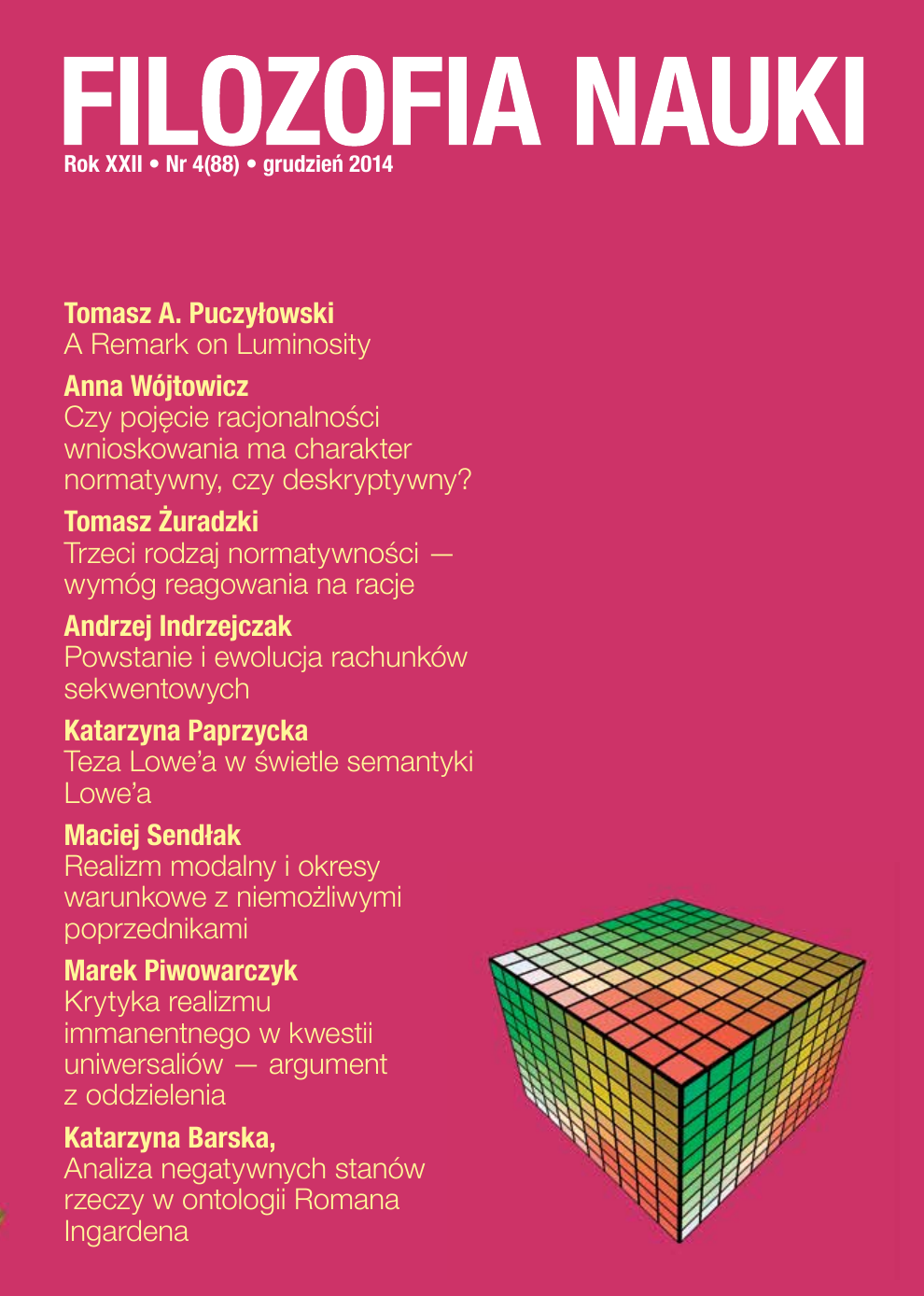Lowe’s Thesis in Light of Lowe’s Semantics
Keywords:
counterfactuals, closeness, disjunctive antecedents, identity theory, Lowe, Lewis, possible worldsAbstract
Lowe’s thesis (essential for his argument against identity theory) is the claim that if not all neurons had behaved the way they actually did, the arm would have risen anyway. Lowe’s argument for the thesis depends on a controversial delimitation of the class of the closest possible worlds (on Lewis’ semantics). I show how one could use Lowe’s semantics in the evaluation of Lowe’s thesis. I demonstrate that a weaker version of the principle of the simplification of disjunctive antecedents holds on this semantics. One can use the principle to argue for or against Lowe’s thesis. On Lowe’s semantics, the debate between defenders and opponents of Lowe’s thesis in fact mimics the standstill concerning the question which possible worlds are the closest to the actual world on Lewis’ semantics. However, Lowe’s semantics offers a way out of the impasse. I argue that the opponents of Lowe’s thesis are ultimately at an advantage.Downloads
Published
2014-12-01
How to Cite
Paprzycka, K. (2014). Lowe’s Thesis in Light of Lowe’s Semantics. The Philosophy of Science, 22(4), 71–90. Retrieved from https://fn.uw.edu.pl/index.php/fn/article/view/774
Issue
Section
Articles















 Filozofia Nauki/The Philosophy of Science | ISSN 1230-6894 | e-ISSN 2657-5868
Filozofia Nauki/The Philosophy of Science | ISSN 1230-6894 | e-ISSN 2657-5868